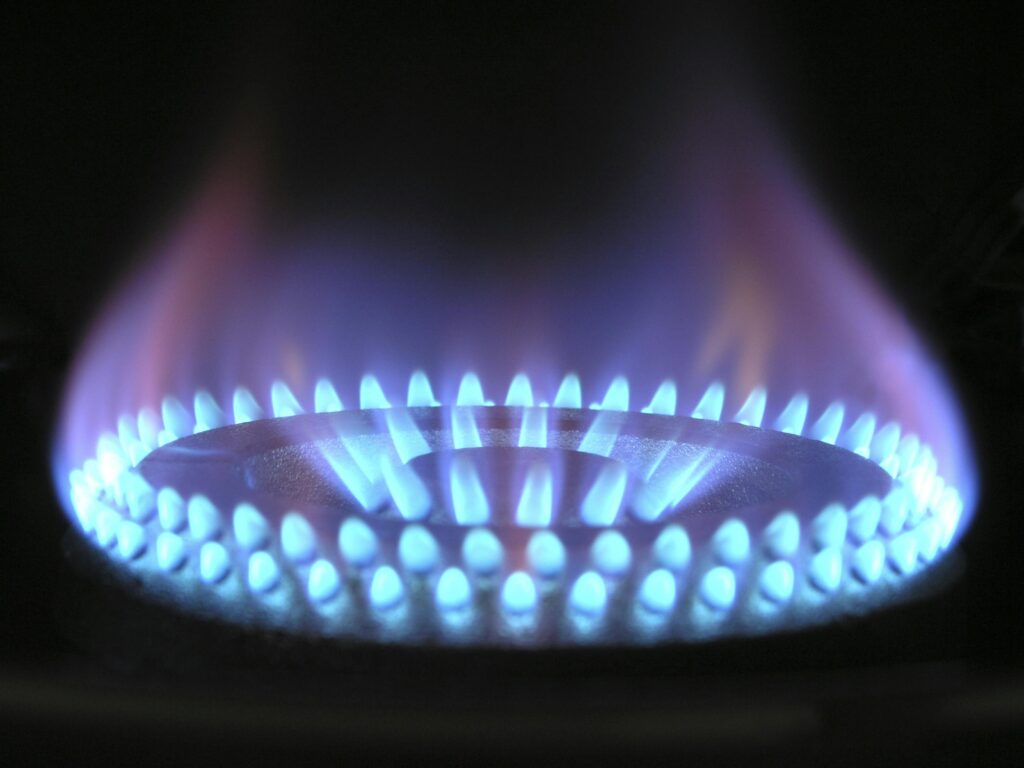European natural gas prices are surging, approaching €60 per megawatt-hour, driven by an unusually cold winter and rapidly declining storage levels.
Gas Prices on an Upward Trend
Since mid-December, European gas prices have skyrocketed by 45%, climbing from below €40 per megawatt-hour to over €58 as of yesterday. This sharp increase is primarily fueled by growing concerns over shrinking gas reserves, raising fears of supply shortages in the coming months.
Why Are European Gas Reserves Depleting So Quickly?
Several key factors are contributing to the rapid drawdown of Europe’s natural gas stockpiles:
Prolonged Cold Weather – Unlike last year, winter temperatures in Europe have remained consistently low for an extended period, driving up demand for natural gas for heating. Forecasts suggest continued cold spells in the coming weeks.
Weaker Wind Energy Output – Wind energy production has been significantly lower than expected due to weaker winds. As a result, gas-fired power plants have been forced to compensate, increasing gas consumption.
Gas Storage Levels at a Historic Low
Currently, European gas storage facilities are only 49% full, a steep decline from the 67% level recorded at this time last year.
To ensure energy security for the next winter, Europe needs to refill its gas reserves to 90% capacity by November 1. However, achieving this target will be extremely challenging due to several factors:
Key Challenges for European Gas Supply
1️⃣ No more Russian gas via Ukraine
Since the invasion of Ukraine, Europe has imposed strict sanctions on Russian gas imports. The latest development is that the remaining Russian gas transit through Ukraine has been halted, cutting off another key supply route.
2️⃣ LNG imports face geopolitical risks
To compensate for lost pipeline gas, Europe has significantly increased imports of liquefied natural gas (LNG), primarily from the United States. However, trade tensions between the U.S. and Europe could put these LNG supplies at risk:
Former U.S. President Donald Trump has hinted at imposing high tariffs on European goods if re-elected. In retaliation, the EU could target American LNG exports, potentially making LNG more expensive for European buyers.
3️⃣ Norway’s summer maintenance disruptions
Norway, one of Europe’s largest gas suppliers, has scheduled major gas infrastructure maintenance this summer. This planned downtime will temporarily reduce Norwegian gas exports, forcing Europe to seek alternative LNG suppliers, including Australia.
4️⃣ Industry switching to coal and oil
As gas prices soar, some energy-intensive industries have shifted back to cheaper alternatives such as coal and oil. While this could slightly reduce gas demand, it marks a setback for Europe’s energy transition goals.
Europe Faces a Tough Road Ahead
With cold weather persisting, geopolitical uncertainties looming, and supply disruptions on the horizon, Europe faces an uphill battle to replenish its gas reserves in time for next winter.
⏳ Will Europe be able to secure enough gas before the next heating season? The coming months will be critical in shaping the region’s energy security.



